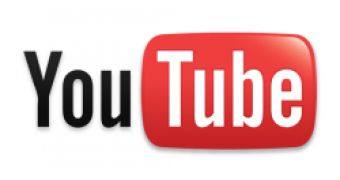It's not making too much fuss about it, probably for good reason, but Google's YouTube is a big gambit for the search engine. It's already the largest video site on the web, but that's like saying you're Little League champion. YouTube wants to play in the Big League and make a play for advertising money now meant for TV and cable.
And Google is prepared to pay big sums to do that. It's willing to spend some $100 million, €75 million to secure professional content and shows.
Some other rumors say it's prepared to spend as much as $500 million, €375 million, to fund or acquire professional or semi-professional content, over a larger period of time.
The Wall Street Journal is adding a few more details for YouTube's ambitious plans and says the video site is in talks with several production houses and companies.
Apparently, it has already partnered or is very close to partnering with Tony Hawk, the former pro-skater, as well as Warner Bros. and News Corp.'s ShineReveille.
The report lists several other media companies and units with which YouTube is talking to, including FremantleMedia Ltd., the producers of "The X Factor," BermanBraun and IAC's Electus.
YouTube wants to buy new original shows from these producers and is forking the money needed for the pilots and starting the projects. Presumably, if the pilots do well on YouTube, the site may order a full set of episodes to run in dedicated channels.
The reason why YouTube is willing to spend so much on this type of content, which will probably involved some reality shows, gameshows and so on, is to get ad spending and, more importantly, ad prices up.
The site should be making about $1 billion, €750 million, in ad revenue this year, but it's probably not profitable. And if it's willing to spend this much to acquire new content, it's not going to be profitable for a while now.
But the site is making this much money selling ads at bargain-basement prices and only for a small portion of its catalogue. With professional and better-produced content, ad rates will rise and, if the new shows are popular, ad volume should as well.
In the end, YouTube wants to get a piece of the TV ad pie, which is at about $60 billion, €45 billion per year. And it's willing to lose money for a few more years to do it.

 14 DAY TRIAL //
14 DAY TRIAL //